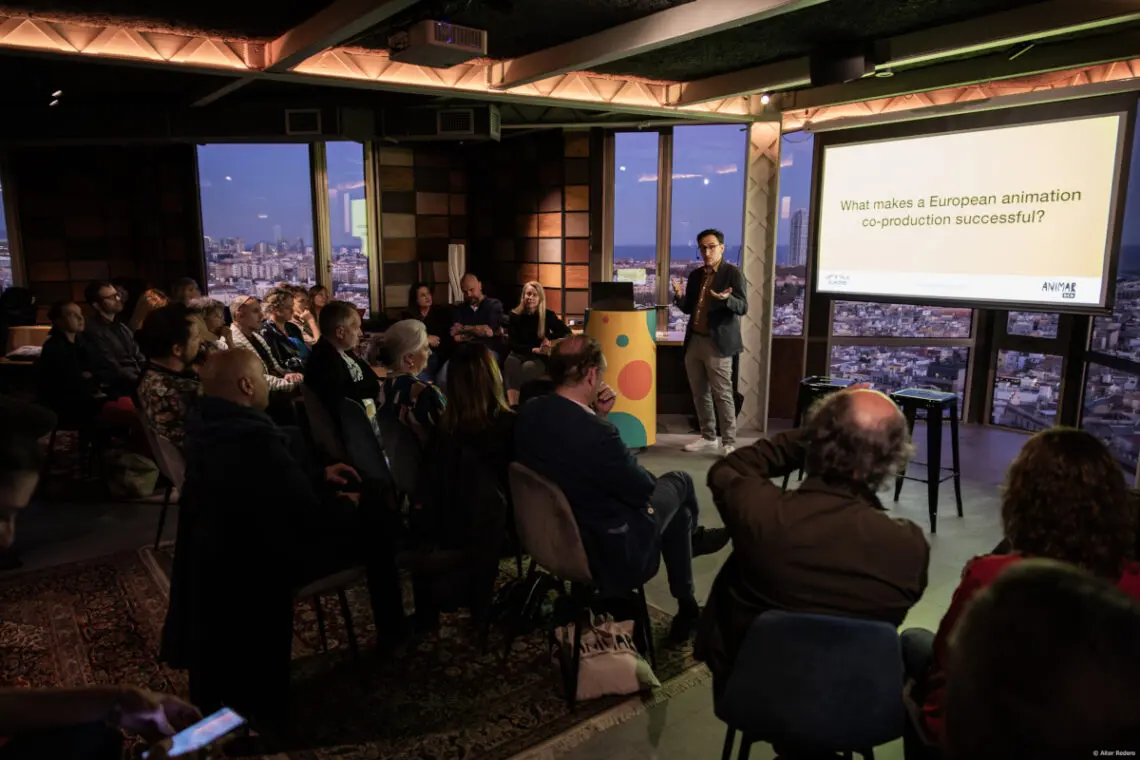Focus on European animation: Overcoming challenges and creating opportunities
Deep dive into the state of the European animation industry
In Barcelona, the Animation BCN event recently concluded after three intensive days filled with collaborative working groups, roundtable discussions, and networking opportunities. This year, the event assembled 90 representatives from 60 European industry organizations across 24 countries, focusing on strategies to navigate what has been termed a “global animation crisis.”
Technical analysis of current issues in animation
The conference addressed some of the most pressing themes in the animation sector today, including artificial intelligence, sustainable animation practices, media regulations, and the benefits of co-production. The gathering included influential figures such as producers, distributors, broadcasters, and government representatives.
One salient point was the application of the Audiovisual Media Services (AMVS) Directive to all platforms providing audiovisual content. This would theoretically impose greater responsibilities on platforms like YouTube and TikTok to safeguard children better.
The importance of co-production in European animation
Another critical discussion revolved around the underfunding of children’s programming and the impact of the ongoing global animation crisis. Participants underscored the importance of co-productions and urged for more robust collaboration between financial institutions and broadcasters. They proposed creating enhanced tax incentives linked to IP retention by European companies, which could potentially fortify the competitiveness of the independent sector.
Ethical considerations in AI for animation
In another focused group, the ethical implementation of artificial intelligence (AI) in animation was deliberated. Emphasis was placed on a human-centered approach, advocating for the development of a Best Practice Guide for the legal, ethical, and sustainable use of AI tools. Additionally, increasing access to training programs for industry professionals was highlighted, ensuring they remain updated with the best interests of the sector.
Sustainable animation: A shared commitment
A think tank zeroed in on the urgency for environmental sustainability in animation production. The call to action was for the establishment of common green production standards, suggesting that national stakeholders join an international working group dedicated to this cause.
Moving forward with European animation initiatives
Building on the previous recommendations, Animation in Europe has initiated a pioneering project in collaboration with various European universities. This project, titled Anima Mundi, aims to delve deep into the European Animation Industry Ecosystem. Set to span from February 2025 to July 2028, the project has secured €4 million in funding from the European Commission through the Horizon Europe program.
Anima Mundi focuses on key issues such as intellectual property (IP) management, the distribution of content, and fostering cross-border collaborations. Additionally, the project seeks to launch a European Animation Brand, along with policy-making dashboards and toolkits tailored to enhance IP management and content discoverability.
Upcoming spin-off workshops to foster continued dialogue
Looking ahead, Animar BCN plans to introduce a series of spin-off workshops concentrating on distinct topics, with each workshop organized in different European locations. The first of these workshops is scheduled for March of next year in Nova Gorica, Slovenia, and will focus on sustainable practices in animation production, particularly their application in Eastern European territories.
Subsequent workshops planned for the 2026 and 2027 editions of the Annecy Animation Film Festival will center on improving the distribution and global reach of European animated titles.
Conclusion: A collaborative path forward
The Animation BCN event underscored the power of collaboration and foresight in addressing the challenges and seizing the opportunities within the European animation industry. By fostering an environment that encourages co-production, ethical AI practices, and sustainability, the industry can navigate the current global crisis and secure a brighter, more competitive future.

 English
English




